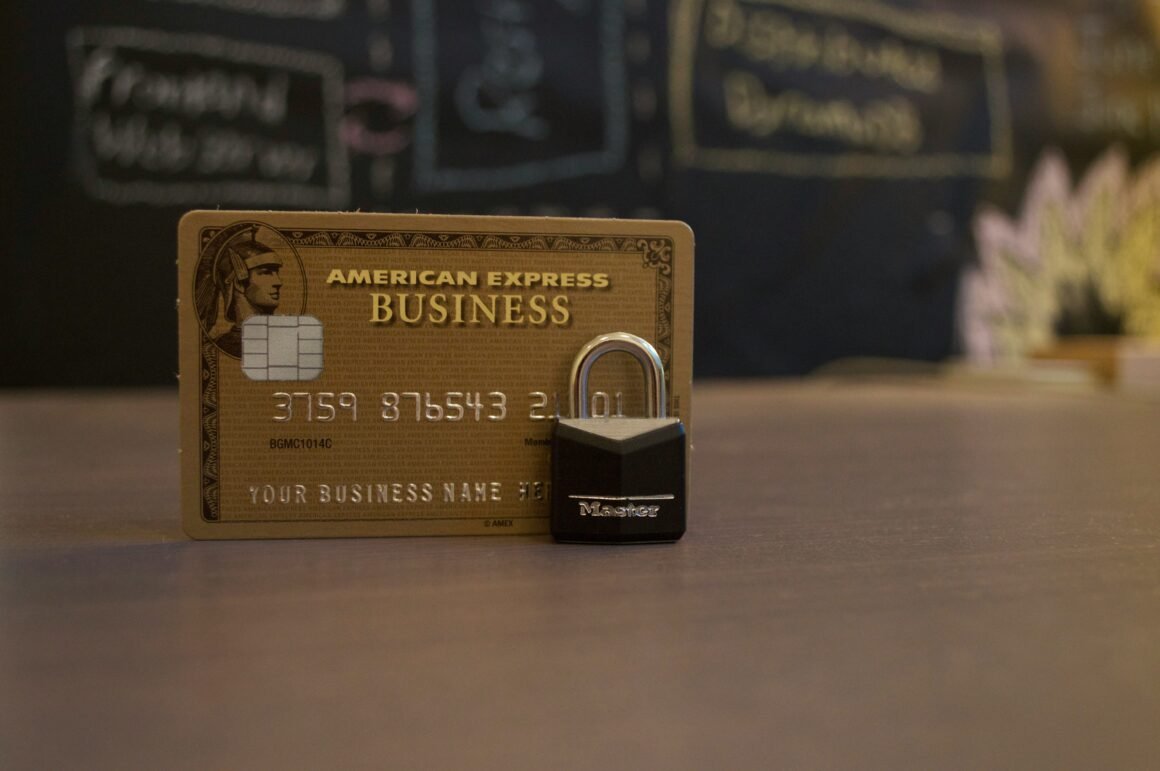Building Credit Like a Boss: Strategies for Women to Establish and Maintain Strong Credit

Welcome to the ultimate guide on Building Credit Like a Boss: Strategies for Women to Establish and Maintain Strong Credit, tailored specifically for women. In today’s financial landscape, establishing and maintaining strong credit is more crucial than ever. Whether you’re aiming to buy a home, start a business, or simply secure your financial future, mastering credit is the key to unlocking countless opportunities. Join us as we delve into proven strategies, expert insights, and invaluable resources designed to empower women on their journey to financial independence and success.
Table of contents
- Building Credit Like a Boss for Women
- Credit Score Tips for Building Credit Like a Boss
- Establishing Credit History as a Woman
- How to Improve Credit Score for Women
- Quick Ways to Building Credit Like a Boss for Women
- Building Credit Like a Boss After Divorce for Women
- Building Credit Like a Boss as a Single Mom
- Rebuilding Credit After Debt Collection for Women
- Credit Building Strategies for Young Women
- Credit Card Myths for Women
- Secured Credit Cards for Women
- Credit Repair Services for Women
- Negotiating Credit Card Interest Rates as a Woman
- Understanding Credit Reports for Women
- Free Credit Monitoring for Women
- Frequently Asked Questions:
Building Credit Like a Boss for Women
Building credit is a fundamental aspect of financial stability and empowerment for women. It involves establishing a positive credit history and maintaining responsible credit habits. Here’s a detailed exploration of key strategies and resources for women looking to build credit effectively:
- Understanding Credit Fundamentals: Before diving into credit building, it’s crucial for women to understand the basics of credit. This includes comprehending how credit scores are calculated, the factors that influence them, and the importance of credit reports. Websites like Investopedia offer comprehensive guides on credit fundamentals tailored to women’s needs.
- Establishing Credit Accounts: One of the first steps in building credit is to open credit accounts. For women with limited or no credit history, secured credit cards can be a viable option. These cards require a security deposit, which serves as collateral and helps mitigate the risk for lenders. By using a secured credit card responsibly and making timely payments, women can demonstrate creditworthiness and establish a positive credit history.
- Building Credit Through Responsible Use: Responsible credit usage is essential for building and maintaining strong credit. Women should aim to keep their credit card balances low relative to their credit limits, make timely payments, and avoid maxing out their credit cards. By practicing these habits consistently, women can gradually improve their credit scores over time.
- Monitoring Credit Regularly: Monitoring credit regularly is key to staying informed about one’s credit health and detecting any inaccuracies or fraudulent activity. Websites like Credit Karma offer free credit monitoring services that allow women to track changes to their credit scores and receive alerts about potential issues. By staying vigilant and addressing any discrepancies promptly, women can safeguard their credit profiles.
- Seeking Financial Education and Guidance: Building credit can be complex, especially for women who are new to managing their finances independently. Seeking financial education and guidance from reputable sources is essential. Organizations like the National Foundation for Credit Counseling (NFCC) offer free credit counseling services and educational resources tailored to women’s needs. These resources can provide valuable insights and guidance on building credit effectively.
Credit Score Tips for Building Credit Like a Boss
A good credit score is essential for accessing favorable lending terms and achieving financial goals. Women can take proactive steps to improve and maintain their credit scores by following these tips:
- Pay Bills on Time: Payment history is a significant factor in credit scoring, accounting for approximately 35% of a credit score. Women should prioritize making timely payments on all credit accounts, including credit cards, loans, and utility bills. Setting up automatic payments or reminders can help ensure bills are paid on time.
- Manage Credit Utilization: Credit utilization, or the ratio of credit card balances to credit limits, plays a crucial role in credit scoring. Women should aim to keep their credit card balances low relative to their credit limits, ideally below 30%. High credit utilization can signal financial distress to lenders and negatively impact credit scores.
- Diversify Credit Accounts: Having a mix of credit accounts, such as credit cards, installment loans, and mortgages, can positively impact credit scores. Women should consider diversifying their credit portfolio over time, but only if they can manage the additional credit responsibly. Opening new credit accounts solely for the purpose of diversification may result in unnecessary credit inquiries and temporary score decreases.
- Monitor Credit Reports Regularly: Monitoring credit reports regularly allows women to identify errors, inaccuracies, or fraudulent activity that may impact their credit scores. Under federal law, consumers are entitled to a free credit report from each of the three major credit bureaus (Equifax, Experian, and TransUnion) annually. Websites like AnnualCreditReport.com provide access to free credit reports, enabling women to review their credit information and address any issues promptly.
- Limit New Credit Inquiries: Each time a woman applies for new credit, a hard inquiry is recorded on her credit report, which can temporarily lower her credit score. Women should limit unnecessary credit inquiries and only apply for credit when needed. Shopping around for the best loan or credit card terms within a short timeframe typically results in multiple inquiries being treated as a single inquiry for scoring purposes, minimizing the impact on credit scores.
Example:
Consider Sarah, a young professional aiming to improve her credit score. She commits to paying all her bills on time, keeping her credit card balances low, and monitoring her credit reports regularly. After six months of diligent effort, Sarah sees a noticeable increase in her credit score, allowing her to qualify for better loan terms and credit card offers.
Relevant Resources:
- Websites: Investopedia offers detailed articles on credit score tips and best practices for women.
- Credit Monitoring Services: Credit Karma provides free credit score monitoring and personalized recommendations for improving credit scores.
- Financial Literacy Resources: The National Endowment for Financial Education (NEFE) offers financial education workshops and resources, including guides on credit score management for women.
Establishing Credit History as a Woman
Establishing a solid credit history is crucial for women who are new to credit or have limited credit experience. It lays the foundation for future credit opportunities and financial stability. Here are strategies and resources for women looking to establish credit history effectively:
- Opening a Starter Credit Account: For women with little to no credit history, opening a starter credit account can be a strategic first step. This could involve applying for a secured credit card or becoming an authorized user on a trusted family member’s credit card. Starter credit accounts provide an opportunity to demonstrate responsible credit behavior and begin building a positive credit history.
- Using Alternative Credit Reporting: Traditional credit scoring models may not capture certain types of payments, such as rent, utility bills, or phone bills. However, alternative credit reporting services allow women to include these payments in their credit profiles, providing a more comprehensive picture of their creditworthiness. By opting into alternative credit reporting programs, women can leverage their consistent payment history to establish credit history effectively.
- Applying for Credit Builder Loans: Credit builder loans are designed to help individuals build credit from scratch or rehabilitate damaged credit. These loans typically involve borrowing a small amount of money, which is held in a savings account or certificate of deposit (CD) as collateral. As the borrower makes regular payments on the loan, their payment history is reported to the credit bureaus, helping establish a positive credit history over time.
- Securing a Co-Signer or Guarantor: In some cases, women may struggle to qualify for credit independently due to limited credit history or insufficient income. In such situations, securing a co-signer or guarantor with established credit and financial stability can increase the likelihood of approval for credit accounts. However, it’s essential for women to understand that the co-signer or guarantor assumes responsibility for the debt if the primary borrower fails to repay it.
Example:
Maria, a recent college graduate, has limited credit history but wants to establish credit to qualify for an apartment lease and eventually purchase a car. She decides to apply for a secured credit card with a small credit limit and makes consistent, on-time payments each month. Additionally, Maria enrolls in a rent reporting service, which allows her monthly rent payments to be included in her credit profile. Within a year, Maria has built a solid credit history, enabling her to secure the apartment lease and qualify for an auto loan.
Relevant Resources:
- Websites: The Consumer Financial Protection Bureau (CFPB) offers information on alternative credit reporting options and strategies for building credit history.
- Credit Builder Loans: Financial institutions like credit unions and community banks often offer credit builder loans with favorable terms for individuals looking to establish credit history.
- Credit Education Programs: The National Foundation for Credit Counseling (NFCC) provides credit counseling services and educational resources to help women navigate the credit-building process effectively.

How to Improve Credit Score for Women
Improving a credit score is a gradual process that requires patience, discipline, and strategic planning. Women can take proactive steps to enhance their credit scores by implementing the following strategies:
- Paying Bills on Time: Payment history is the most significant factor influencing credit scores, accounting for approximately 35% of the score. Women should prioritize making timely payments on all credit accounts, including credit cards, loans, and utility bills. Setting up automatic payments or reminders can help ensure bills are paid on time consistently.
- Reducing Credit Card Balances: Credit utilization, or the ratio of credit card balances to credit limits, plays a crucial role in credit scoring. Women should aim to keep their credit card balances low relative to their credit limits, ideally below 30%. High credit utilization can signal financial distress to lenders and negatively impact credit scores. Paying down credit card balances or redistributing balances across multiple cards can help lower credit utilization and improve credit scores.
- Avoiding New Credit Inquiries: Each time a woman applies for new credit, a hard inquiry is recorded on her credit report, which can temporarily lower her credit score. Women should limit unnecessary credit inquiries and only apply for credit when needed. Shopping around for the best loan or credit card terms within a short timeframe typically results in multiple inquiries being treated as a single inquiry for scoring purposes, minimizing the impact on credit scores.
- Diversifying Credit Accounts: Having a diverse mix of credit accounts, such as credit cards, installment loans, and mortgages, can positively impact credit scores. Women should consider diversifying their credit portfolio over time, but only if they can manage the additional credit responsibly. Opening new credit accounts solely for the purpose of diversification may result in unnecessary credit inquiries and temporary score decreases.
- Monitoring Credit Reports Regularly: Regularly monitoring credit reports allows women to identify errors, inaccuracies, or fraudulent activity that may impact their credit scores. Under federal law, consumers are entitled to a free credit report from each of the three major credit bureaus (Equifax, Experian, and TransUnion) annually. Websites like AnnualCreditReport.com provide access to free credit reports, enabling women to review their credit information and address any issues promptly.
Example:
Sophia, a working professional, decides to improve her credit score to qualify for a mortgage. She starts by reviewing her credit report for errors and disputing any inaccuracies she finds. Next, Sophia creates a budget to allocate more funds towards paying down her credit card balances. She also refrains from applying for new credit and focuses on making timely payments on her existing accounts. Over time, Sophia sees a steady increase in her credit score, allowing her to secure a favorable mortgage rate and purchase her dream home.
Relevant Resources:
- Credit Monitoring Services: Websites like Credit Karma and Experian offer free credit monitoring services that allow women to track changes to their credit scores and receive alerts about potential issues.
- Credit Education Resources: Financial literacy workshops and resources provided by organizations like the National Endowment for Financial Education (NEFE) offer guidance on improving credit scores and managing credit effectively.
- Credit Repair Books: Books such as “Credit Repair Magic: The Ultimate Guide to Fixing Your Credit Score” by Kimberly Davis provide actionable strategies and insights into improving credit health.
Quick Ways to Building Credit Like a Boss for Women
In today’s fast-paced world, women may seek expedited methods to build credit efficiently. While building credit is typically a gradual process, there are several quick ways women can establish credit history and boost their credit scores:
- Using Alternative Credit Reporting Services: Traditional credit scoring models may not capture certain types of payments, such as rent, utility bills, or phone bills. Alternative credit reporting services allow women to include these payments in their credit profiles, providing a more comprehensive picture of their creditworthiness. By opting into alternative credit reporting programs, women can leverage their consistent payment history to establish credit history rapidly.
- Enrolling in Rent Reporting Services: Rent reporting services allow women to have their monthly rent payments reported to the credit bureaus, potentially boosting their credit scores. By making timely rent payments, women can demonstrate responsible financial behavior and build credit history without taking on additional debt. Rent reporting services typically require a one-time enrollment fee and a small monthly fee for ongoing reporting.
- Exploring Credit Builder Loans: Credit builder loans are designed to help individuals build credit from scratch or rehabilitate damaged credit. These loans typically involve borrowing a small amount of money, which is held in a savings account or certificate of deposit (CD) as collateral. As the borrower makes regular payments on the loan, their payment history is reported to the credit bureaus, helping establish a positive credit history over time.
- Becoming an Authorized User on a Trusted Account: Women can piggyback on someone else’s credit history by becoming an authorized user on a trusted family member’s or friend’s credit card account. As an authorized user, women can benefit from the primary cardholder’s positive payment history and credit utilization, which can help establish credit history and boost credit scores quickly. However, it’s essential for women to choose a primary cardholder who manages their credit responsibly to avoid potential negative impacts.
- Applying for a Secured Credit Card: Secured credit cards offer a valuable entry point for women looking to establish credit history. These cards require a security deposit, which serves as collateral and helps mitigate the risk for lenders. By using a secured credit card responsibly and making timely payments, women can demonstrate creditworthiness and improve their credit scores over time.
Example:
Jenny, a recent college graduate, wants to build credit quickly to qualify for an apartment lease. She enrolls in a rent reporting service, which reports her monthly rent payments to the credit bureaus. Additionally, Jenny becomes an authorized user on her parent’s credit card account, leveraging their positive credit history to boost her own credit score. Within six months, Jenny sees a significant increase in her credit score, allowing her to secure an apartment lease with favorable terms.
Relevant Resources:
- Rent Reporting Services: Websites like RentTrack and Rental Kharma offer rent reporting services that allow women to have their monthly rent payments reported to the credit bureaus.
- Credit Builder Loans: Financial institutions like credit unions and community banks often offer credit builder loans with favorable terms for individuals looking to establish credit history quickly.
- Secured Credit Card Reviews: Comparison tools and reviews for secured credit cards provided by financial websites like NerdWallet and Credit Karma can help women choose the best secured card option for their needs.
Building Credit Like a Boss After Divorce for Women
Divorce can have significant financial implications, including impacts on credit. Women navigating post-divorce financial transitions can take steps to rebuild their credit and regain financial independence. Here are strategies and resources for building credit after divorce:
- Closing Joint Accounts: During divorce proceedings, it’s essential for women to close joint credit accounts shared with their ex-spouse to prevent future financial liabilities. Closing joint accounts can help protect women’s credit scores and prevent potential disputes over shared debts. However, it’s crucial to ensure that all joint debts are paid off or refinanced before closing the accounts.
- Establishing Individual Credit Accounts: After closing joint accounts, women should focus on establishing individual credit accounts to build credit in their name. This may involve opening new credit cards, loans, or utility accounts in their sole name. By demonstrating responsible credit behavior and making timely payments on individual accounts, women can begin rebuilding their credit independently.
- Monitoring Credit Reports for Inaccuracies: Divorce can be a tumultuous time, and errors or inaccuracies on credit reports may occur as a result of financial disputes or identity theft. Women should monitor their credit reports regularly for any discrepancies and dispute errors promptly with the credit bureaus. Websites like AnnualCreditReport.com provide access to free credit reports from each of the three major credit bureaus, enabling women to review their credit information and address any issues promptly.
- Seeking Support from Credit Counseling Services: Divorce can take a toll on women’s financial well-being, but professional credit counseling services can provide guidance and support during challenging times. Organizations like the National Foundation for Credit Counseling (NFCC) offer free credit counseling services and educational resources tailored to women’s needs. Credit counselors can help women develop personalized credit rebuilding strategies and navigate complex financial situations with confidence.
- Creating a Budget and Financial Plan: Establishing a budget and financial plan is essential for women rebuilding credit after divorce. A budget helps women track their expenses, prioritize debt repayment, and allocate funds towards building savings and emergency funds. By creating a realistic budget and sticking to it, women can regain control of their finances and lay the foundation for long-term financial stability.
Example:
After finalizing her divorce, Emily finds herself facing the daunting task of rebuilding her credit. She starts by closing joint credit accounts with her ex-spouse and opening individual credit accounts in her name. Emily enrolls in a credit monitoring service to keep track of her credit reports and dispute any inaccuracies promptly. Additionally, Emily seeks support from a credit counselor who helps her create a budget and develop a plan for rebuilding her credit. With perseverance and determination, Emily successfully rebuilds her credit and achieves financial independence.
Relevant Resources:
- Credit Counseling Services: The National Foundation for Credit Counseling (NFCC) offers free credit counseling services and educational resources tailored to women’s needs, including those going through divorce.
- Credit Monitoring Services: Websites like Credit Karma and Experian offer free credit monitoring services that allow women to track changes to their credit scores and receive alerts about potential issues.
- Financial Literacy Resources: The Consumer Financial Protection Bureau (CFPB) provides financial education resources and tools, including information on credit rebuilding strategies for women.
Building Credit Like a Boss as a Single Mom
Single mothers face unique financial challenges, but they can still build strong credit profiles with the right strategies. By prioritizing financial stability and leveraging available resources, single moms can establish solid credit histories and pave the way for a brighter financial future. Here are strategies and resources for building credit as a single mom:
- Creating a Budget and Emergency Fund: Budgeting is a foundational aspect of financial management for single moms. By creating a budget that accounts for all expenses and income sources, single moms can gain better control over their finances and allocate funds towards building savings and emergency funds. An emergency fund provides a financial safety net for unexpected expenses and helps prevent reliance on credit during challenging times.
- Prioritizing Bill Payments: Timely bill payments are crucial for maintaining good credit and avoiding late fees and penalties. Single moms should prioritize bill payments and ensure that essential expenses, such as rent, utilities, and childcare, are paid on time each month. Setting up automatic payments or reminders can help streamline the bill payment process and reduce the risk of missed payments.
- Exploring Credit-Building Opportunities: Single moms can explore various credit-building opportunities to establish or improve their credit scores. This may include applying for a secured credit card, becoming an authorized user on a trusted family member’s credit card, or enrolling in alternative credit reporting programs that include rent or utility payments in credit profiles. By utilizing these credit-building tools responsibly, single moms can lay the foundation for strong credit histories.
- Seeking Financial Education and Support: Navigating finances as a single mom can be challenging, but seeking financial education and support can provide valuable guidance and assistance. Organizations like the National Foundation for Credit Counseling (NFCC) offer free credit counseling services and educational resources tailored to single moms‘ needs. Credit counselors can help single moms develop personalized financial plans, establish budgets, and navigate credit-building strategies effectively.
- Building a Support Network: Building a support network of family, friends, and community resources can provide single moms with additional support and assistance as they work towards financial goals. Local community organizations, faith-based groups, and parenting support networks may offer resources such as financial literacy workshops, childcare assistance, and food pantries to help single moms manage expenses and build financial stability.
Example:
Anna, a single mom of two young children, is determined to build a strong credit profile despite the challenges she faces. She starts by creating a detailed budget that accounts for all her expenses and income sources. Anna prioritizes bill payments and sets up automatic payments for recurring expenses to avoid missed payments. Additionally, Anna applies for a secured credit card and enrolls in a rent reporting service to build credit history. With perseverance and support from her network, Anna successfully establishes a solid credit foundation and works towards achieving her financial goals.
Relevant Resources:
- Credit Counseling Services: The National Foundation for Credit Counseling (NFCC) offers free credit counseling services and educational resources tailored to single moms’ needs.
- Community Resources: Local community organizations and faith-based groups may offer resources such as financial literacy workshops, childcare assistance, and food pantries to help single moms manage expenses and build financial stability.
- Financial Literacy Workshops: Financial education workshops offered by organizations like the National Endowment for Financial Education (NEFE) provide single moms with valuable knowledge and skills to navigate finances effectively.
Rebuilding Credit After Debt Collection for Women
Dealing with debt collection can be a stressful and challenging experience, but women can take proactive steps to rebuild their credit and regain financial stability. By understanding their rights, negotiating settlements, and implementing credit repair strategies, women can rebuild their credit profiles and move forward with confidence. Here are strategies and resources for rebuilding credit after debt collection:
- Understanding Debt Collection Laws: Women should familiarize themselves with debt collection laws and their rights as consumers. The Fair Debt Collection Practices Act (FDCPA) prohibits abusive, deceptive, and unfair debt collection practices and provides consumers with certain protections. Women should be aware of their rights, including the right to request validation of debts and dispute inaccurate information.
- Negotiating Settlements: When dealing with outstanding debts in collection, women may have the opportunity to negotiate settlements with creditors or debt collectors. Negotiating a settlement involves agreeing to pay a portion of the total debt amount in exchange for the creditor or collector agreeing to consider the debt satisfied. Women should carefully review settlement offers, negotiate terms that are favorable, and obtain written confirmation of the agreement before making any payments.
- Implementing Credit Repair Strategies: After settling debts in collection, women can take steps to repair their credit and rebuild their credit profiles. This may include reviewing credit reports for inaccuracies, disputing errors with the credit bureaus, and implementing responsible credit usage habits. Women should focus on making timely payments, keeping credit card balances low, and avoiding new credit inquiries to gradually improve their credit scores over time.
- Seeking Professional Assistance: Rebuilding credit after debt collection can be complex, and women may benefit from seeking professional assistance from reputable credit repair services. Credit repair services can help women navigate the credit repair process, dispute inaccuracies on credit reports, and develop personalized credit improvement plans. It’s essential for women to research and choose reputable credit repair services that comply with applicable laws and regulations.
- Maintaining Financial Discipline: Rebuilding credit requires patience, discipline, and consistency. Women should commit to maintaining financial discipline by sticking to budgets, avoiding unnecessary expenses, and prioritizing debt repayment. By staying organized, focused, and proactive, women can gradually rebuild their credit and regain financial stability.
Example:
After struggling with debt collection following a period of financial hardship, Rachel decides to take proactive steps to rebuild her credit. She negotiates settlements with creditors and debt collectors, resolving outstanding debts for reduced amounts. Rachel reviews her credit reports for inaccuracies and disputes any errors with the credit bureaus. Additionally, Rachel enrolls in a credit monitoring service to track changes to her credit scores and receives personalized recommendations for improving her credit health. With determination and perseverance, Rachel successfully rebuilds her credit and achieves financial peace of mind.
Relevant Resources:
- Debt Collection Laws: The Consumer Financial Protection Bureau (CFPB) provides information on debt collection laws and consumer rights under the Fair Debt Collection Practices Act (FDCPA).
- Credit Repair Services: Websites like CreditRepair.com and Lexington Law offer credit repair services and resources to help women rebuild credit after debt collection.
- Credit Monitoring Services: Credit Karma and Experian offer free credit monitoring services that allow women to track changes to their credit scores and receive alerts about potential issues.

Credit Building Strategies for Young Women
Young women entering adulthood face unique challenges and opportunities when it comes to building credit. Establishing a strong credit foundation early on can set the stage for financial success and independence. Here are strategies and resources for young women looking to build credit effectively:
- Educating Yourself About Credit: Financial literacy is essential for young women embarking on their credit-building journey. Taking the time to educate oneself about credit fundamentals, including credit scores, credit reports, and responsible credit usage habits, lays the groundwork for informed decision-making. Websites like Investopedia and the Consumer Financial Protection Bureau (CFPB) offer comprehensive guides and resources on credit education tailored to young adults.
- Opening a Starter Credit Account: For young women with limited or no credit history, opening a starter credit account is a strategic first step. This could involve applying for a secured credit card or becoming an authorized user on a parent’s credit card account. Starter credit accounts provide an opportunity to establish credit history and demonstrate responsible credit behavior early on.
- Building Credit Through Responsible Use: Responsible credit usage is key to building and maintaining strong credit. Young women should aim to use credit cards and other credit accounts responsibly by making timely payments, keeping balances low, and avoiding maxing out credit limits. By practicing these habits consistently, young women can establish positive credit habits that will serve them well in the future.
- Leveraging Student Loans Responsibly: Student loans can be a double-edged sword for young women seeking to build credit. While student loans provide an opportunity to establish credit history, they also represent significant financial obligations that must be managed responsibly. Young women should borrow only what they need for educational expenses, explore federal loan options with favorable terms, and make timely payments to avoid delinquency or default.
- Exploring Alternative Credit Reporting: Traditional credit scoring models may not capture certain types of payments, such as rent, utility bills, or phone bills. Alternative credit reporting services allow young women to include these payments in their credit profiles, providing a more comprehensive picture of their creditworthiness. By opting into alternative credit reporting programs, young women can leverage their consistent payment history to build credit effectively.
Example:
Emily, a recent high school graduate, is eager to start building credit as she prepares for college and adulthood. She opens a secured credit card with a small credit limit and makes small purchases each month, paying off the balance in full to avoid interest charges. Emily also becomes an authorized user on her parent’s credit card account, which has a long history of on-time payments and low balances. By practicing responsible credit habits early on, Emily lays the foundation for a strong credit profile and financial independence.
Relevant Resources:
- Credit Education Resources: Financial literacy workshops and resources offered by organizations like the National Endowment for Financial Education (NEFE) provide young women with valuable knowledge and skills to navigate credit effectively.
- Student Loan Guidance: The Department of Education’s Federal Student Aid website offers information and resources on federal student loans, including repayment options and loan management tips for young borrowers.
- Alternative Credit Reporting Services: Rent reporting services like RentTrack and Rental Kharma allow young women to have their monthly rent payments reported to the credit bureaus, helping them build credit history while renting.
Credit Card Myths for Women
Credit cards are powerful financial tools that can be both beneficial and risky if not managed properly. Unfortunately, myths and misconceptions about credit cards abound, leading to confusion and potentially harmful financial decisions. Women should be aware of common credit card myths and separate fact from fiction to make informed choices about credit card usage. Here are some prevalent credit card myths debunked:
- Myth: Closing Credit Cards Improves Credit Score: Contrary to popular belief, closing credit card accounts can actually harm credit scores in some cases. Closing a credit card reduces the total available credit limit, which can increase credit utilization and lower credit scores. Additionally, closing older credit accounts shortens the average age of credit history, which can also have a negative impact on credit scores. Instead of closing credit cards, women should consider keeping accounts open and using them responsibly to maintain a positive credit history.
- Myth: Carrying a Balance Boosts Credit Score: Some people believe that carrying a balance on a credit card and paying only the minimum amount due each month can help improve credit scores. However, this is a costly misconception that can lead to unnecessary interest charges and debt accumulation. Paying off credit card balances in full each month demonstrates responsible credit usage and can help improve credit scores over time.
- Myth: Having Many Credit Cards Hurts Credit Score: While opening multiple credit card accounts within a short period of time can temporarily lower credit scores due to inquiries and reduced average age of accounts, having multiple credit cards in itself does not necessarily harm credit scores. In fact, having a diverse mix of credit accounts, including credit cards, installment loans, and mortgages, can have a positive impact on credit scores by demonstrating responsible credit management and payment history.
- Myth: Credit Limit Increases Lead to Overspending: Some people fear that requesting a credit limit increase will tempt them to overspend and accumulate debt. While it’s essential for women to use credit cards responsibly and avoid excessive debt, requesting a credit limit increase can actually improve credit utilization ratios and potentially boost credit scores. Women should consider requesting credit limit increases strategically and only if they have demonstrated responsible credit behavior.
- Myth: Paying Off a Collection Account Removes it From Credit Report: Paying off a collection account does not automatically remove it from a credit report. Collection accounts can remain on credit reports for up to seven years from the date of the initial delinquency, regardless of whether the debt is paid off. However, paying off a collection account may reflect positively on credit scores over time, as more recent positive payment history is reported.
Example:
Sarah believes that closing unused credit cards will improve her credit score, so she decides to close several accounts she no longer uses. However, she soon discovers that her credit score has dropped due to the reduction in available credit and average age of accounts. Sarah learns that keeping credit cards open and using them responsibly is better for her credit score than closing accounts unnecessarily.
Relevant Resources:
- Credit Education Resources: Websites like Investopedia and the Consumer Financial Protection Bureau (CFPB) offer comprehensive guides and resources on credit card usage and debunking common myths.
- Credit Counseling Services: The National Foundation for Credit Counseling (NFCC) provides free credit counseling services and educational resources to help women navigate credit card usage and avoid common pitfalls.
- Financial Literacy Workshops: Local community organizations and financial institutions often offer financial literacy workshops that cover topics such as credit card management and debunking credit myths.

Secured Credit Cards for Women
Secured credit cards can be valuable tools for women looking to build or rebuild credit. Unlike traditional credit cards, secured cards require a security deposit, which serves as collateral and reduces the risk for lenders. Secured credit cards offer an opportunity for women with limited or damaged credit histories to demonstrate creditworthiness and improve their credit scores. Here’s what women need to know about secured credit cards:
- How Secured Credit Cards Work: Secured credit cards operate similarly to traditional credit cards, allowing cardholders to make purchases and build credit. The main difference is that secured cards require a security deposit, which typically determines the card’s credit limit. The security deposit serves as collateral and reduces the risk for the card issuer, making secured cards accessible to individuals with limited or damaged credit histories.
- Building Credit History: Secured credit cards provide an opportunity for women to establish or rebuild credit history. By using a secured card responsibly and making timely payments, women can demonstrate creditworthiness and improve their credit scores over time. Secured card activity is reported to the major credit bureaus, allowing cardholders to build positive payment history and establish a solid credit foundation.
- Choosing the Right Secured Card: When selecting a secured credit card, women should consider factors such as fees, interest rates, credit reporting policies, and security deposit requirements. It’s essential to choose a secured card with favorable terms and conditions that align with one’s financial goals and budget. Additionally, women should confirm that the card issuer reports secured card activity to all three major credit bureaus to maximize credit-building potential.
- Managing Secured Card Usage: Responsible credit card usage is key to maximizing the benefits of a secured credit card. Women should aim to keep credit card balances low relative to their credit limits, ideally below 30%. Making timely payments in full each month demonstrates responsible credit behavior and can help improve credit scores over time. It’s important to avoid overspending and to budget effectively to ensure that credit card payments are manageable.
- Transitioning to Unsecured Cards: As women build credit history and demonstrate responsible credit management with a secured card, they may become eligible for unsecured credit cards with higher credit limits and more favorable terms. Some secured card issuers offer opportunities for cardholders to transition to unsecured cards after a period of responsible card usage. Women should inquire about potential upgrade options with their secured card issuer and continue practicing good credit habits to qualify for unsecured cards.
Example:
Jessica, a recent college graduate, decides to apply for a secured credit card to build credit and establish financial independence. She researches different secured card options and chooses one with no annual fee and a reasonable security deposit requirement. Jessica uses her secured card for small purchases each month and pays the balance in full to avoid interest charges. Over time, Jessica’s responsible credit card usage pays off, and she qualifies for an unsecured credit card with better terms and higher credit limit.
Relevant Resources:
- NerdWallet’s Guide to Secured Credit Cards: NerdWallet provides a comprehensive comparison of secured credit cards, helping women choose the right card for their needs.
NerdWallet’s Guide - Credit Karma’s Secured Credit Card Tips: Credit Karma offers insights into how secured credit cards work and provides tips on maximizing their benefits.
Credit Karma – Secured Cards
Credit Repair Services for Women
Women facing credit challenges due to past financial missteps, inaccuracies, or identity theft can turn to professional credit repair services. These services specialize in identifying and rectifying issues on credit reports, negotiating with creditors, and developing personalized strategies for credit improvement.
Key Considerations:
- Credit Report Analysis: Credit repair services conduct a thorough review of credit reports, identifying errors, inaccuracies, or fraudulent activities.
- Dispute Resolution: They assist in disputing inaccuracies with credit bureaus and creditors, leveraging consumer protection laws to rectify issues.
- Personalized Strategies: Credit repair professionals develop tailored plans for each individual, addressing specific credit challenges and goals.
Example:
Consider Maria, who discovered inaccuracies on her credit report after being a victim of identity theft. She enlists a reputable credit repair service to dispute the errors, negotiate with creditors, and guide her through the credit restoration process. Over time, Maria sees improvements in her credit score and successfully addresses the negative impacts of identity theft.
Relevant Resources:
- Consumer Financial Protection Bureau (CFPB): The CFPB provides guidelines on choosing a credit repair company and understanding consumer rights.
CFPB – Credit Repair - National Foundation for Credit Counseling (NFCC): NFCC offers credit counseling services, including resources on credit repair for women.
NFCC – Credit Repair
Negotiating Credit Card Interest Rates as a Woman
High credit card interest rates can be a significant financial burden. Women can take proactive steps to negotiate lower rates with their creditors, potentially saving money and accelerating debt repayment. Demonstrating responsible credit usage and leveraging their payment history as a negotiating tool are key strategies.
Key Considerations:
- Researching Competitive Offers: Knowledge of current market rates and competing credit card offers strengthens negotiating positions.
- Highlighting Positive Credit Behavior: Emphasizing a history of on-time payments and responsible credit usage provides leverage during negotiations.
- Persistence and Patience: Negotiating lower interest rates may require persistence. Being patient and advocating for one’s financial well-being is essential.
Example:
Imagine Lisa, who has been a long-time customer with her credit card issuer. After researching current market rates, she contacts her issuer, citing her positive payment history and inquiring about the possibility of lowering her interest rate. The issuer, valuing her loyalty and responsible credit behavior, agrees to reduce her interest rate, saving Lisa money on future balances.
Relevant Resources:
- Investopedia’s Guide to Negotiating Credit Card Interest Rates: Investopedia provides insights into the negotiation process and tips for success.
Investopedia – Negotiating Credit Card Rates - NerdWallet’s Tips on Lowering Credit Card Interest Rates: NerdWallet offers practical advice on negotiating with credit card issuers for lower interest rates.
NerdWallet – Lowering Interest Rates
Understanding Credit Reports for Women
A comprehensive understanding of credit reports is crucial for women to manage their credit effectively. Credit reports, generated by credit bureaus, encompass personal information, account history, inquiries, and public records. Familiarity with these components empowers women to identify errors, monitor changes, and detect signs of identity theft or fraud.
Key Considerations:
- Personal Information: Ensuring accuracy in personal details such as name, address, and Social Security number is vital for maintaining a correct credit report.
- Account History: Reviewing credit accounts, payment history, and credit utilization provides insights into credit health and areas for improvement.
- Public Records and Inquiries: Monitoring for any legal actions or inquiries on the credit report helps identify potential red flags.
Example:
Consider Jessica, who regularly reviews her credit report. She notices a discrepancy in her personal information and promptly contacts the credit bureau to correct it. By staying vigilant and addressing issues promptly, Jessica ensures the accuracy of her credit report, contributing to a positive credit profile.
Relevant Resources:
- Consumer Financial Protection Bureau (CFPB): CFPB provides educational resources and tools to help individuals understand and navigate their credit reports.
CFPB – Understanding Your Credit Report - National Endowment for Financial Education (NEFE): NEFE offers workshops and resources, including guidance on interpreting credit reports.
NEFE – Credit Reports
Free Credit Monitoring for Women
Free credit monitoring services offer women a proactive approach to staying informed about changes to their credit reports. By signing up with reputable providers like Credit Karma or enrolling in credit monitoring programs offered by major credit bureaus, women can receive alerts about significant changes and take prompt action to address any issues that arise.
Key Considerations:
- Alerts for Significant Changes: Free credit monitoring services notify users of changes to their credit reports, such as new accounts or suspicious activities.
- Regular Monitoring: Regularly checking credit reports and utilizing free monitoring tools enhances awareness and aids in quick response to potential issues.
- Immediate Action: In the event of suspicious activities or inaccuracies, women can take immediate action to rectify the situation, protecting their credit health.
Example:
Imagine Rachel, who signed up for free credit monitoring through Credit Karma. She receives an
alert about a new credit inquiry that she did not authorize. Rachel promptly investigates the issue, discovering potential fraud. By taking swift action to dispute the inquiry, Rachel mitigates the risk of further damage to her credit.
Relevant Resources:
- Credit Karma: Credit Karma offers free credit monitoring services, along with educational resources to help users understand their credit reports.
Credit Karma – Credit Monitoring - Experian, TransUnion, Equifax: Major credit bureaus provide free credit monitoring services and tools for consumers to monitor their credit reports.
Experian – Credit Monitoring
As we wrap up this comprehensive guide, remember that building credit is not just about numbers on a report—it’s about empowerment, resilience, and seizing control of your financial destiny. Armed with the knowledge and tools shared here, you have the power to transform your financial future and achieve your dreams. So, go forth with confidence, embrace the journey, and build credit like a boss!
Frequently Asked Questions:
- Can I build credit without a credit card?
Absolutely! Options like rent reporting services and credit builder loans offer alternative pathways to establish credit. - How do student loans impact my credit score?
Student loans can affect credit scores, but making timely payments demonstrates responsible credit behavior. - What are the best credit cards for building credit?
Secured credit cards and credit cards designed for individuals with limited credit history are good options to start with. - How do I dispute errors on my credit report?
You can dispute errors by contacting the credit bureau and providing documentation supporting your claim. - Is credit repair legal and effective?
Yes, credit repair is legal, and it can be effective in rectifying inaccuracies and improving credit health. - What are the benefits of credit monitoring?
Credit monitoring provides alerts about changes to your credit report, helping you detect fraud or errors early. - Can I negotiate my credit card interest rates?
Yes, negotiating with your credit card issuer for lower interest rates is possible, especially with a good payment history. - How can I build credit as a single mother on a tight budget?
Budgeting effectively, prioritizing bill payments, and exploring credit-building options tailored to your situation can help. - What should I do if I become a victim of identity theft?
Take immediate action by reporting the fraud to the credit bureaus, placing a fraud alert on your credit reports, and monitoring your accounts closely. - Where can I find reliable financial literacy resources for women?
Websites like The Financial Diet, NerdWallet, and podcasts like Financially Feminist offer valuable insights and guidance.









